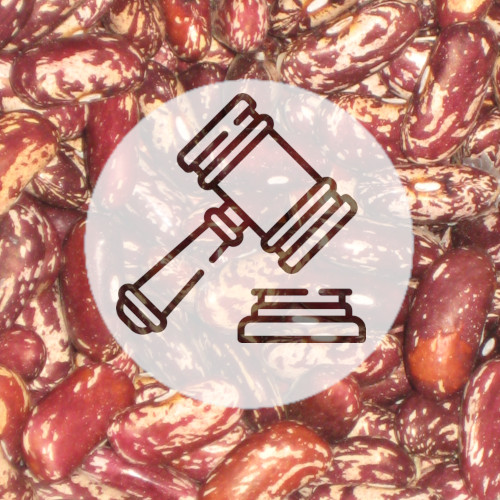Seed Regulations Survey

As you might have learned at Seedy Saturday and Seedy Sunday events this year, the Canadian Food Inspection Agency is leading a major process to update Canada's national seed regulations. The outcome will have a huge impact on farmers and our food system, and you have an opportunity this month to help shape the public response.
Seed is the foundation of our food system. For over 100 years, Canada has benefited from a robust seed regulatory system that provides trustworthy, high quality seed, and gives farmers access to the information they need to make informed decisions.
This is your chance to express your opinions with a clear message that our seed regulations must continue to work in the public interest, and in the interests of farmers.
Your Opinion Matters
The Canadian Food Inspection Agency is collecting opinions from all Canadians through an online survey until May 1, 2023.
Your opinions count, so we urge you to take part.
The issues around seed regulations are complicated, and we know that many people, even those familiar with seed production, will need some help understanding the questions that are being asked and the ramifications of their responses. We endorse the work of the National Farmer's Union, which has clarified the questions in the survey and created a Guide to help with the process. We encourage you to read and understand the issues to make the best use of the CFIA' public consultation.
Here are some examples of the questions being asked
|
Variety Registration Question #2 : Heritage Varieties “The task team believes in order to allow farmers to take advantage of niche market opportunities and provide assurances of varietal purity, the CFIA should seek a regulatory pathway for heritage and heirloom varieties in Canada. Do you support this recommendation?”
Context Note that this question is referring to heritage/heirloom varieties of grain seed – there are no restrictions on selling heritage/heirloom varieties of vegetable seed. Unlike vegetables, most grain crop types are currently legally prohibited from being distributed as seed in Canada unless the variety is registered; the Seeds Regulations do not presently include any mechanism for legally distributing most heritage and heirloom grain varieties. While there is no legal definition of heritage and heirloom grains, there are specific grain varieties that are commonly understood to be categorized as heritage/heirloom when distributed as seed, grain, or flour (e.g., Red Fife wheat, Einkorn, etc.) but have either never been registered or have been de-registered. Seeds of Diversity encourages the conservation and use of heritage and heirloom varieties as an essential part of protecting agricultural biodiversity and seed sovereignty, as well as for developing new organic and ecological crop varieties for food system resilience amidst the unfolding climate crisis. Accordingly, we encourage the CFIA to seek a regulatory pathway to legally distribute heritage and heirloom varieties in Canada. |
|
Variety Registration Question #5 : Additional comments “Please provide any additional feedback you would like CFIA to consider related tovariety registration.” Seeds of Diversity suggests that the existing variety registration system is challenging to access for farmers and for plant breeders developing varieties for organic/ecological farming conditions. There are improvements that could be made to address these challenges without changing the regulations, but would require leadership and policy development at the federal level. These changes should include 1) public funding to support pre-registration trials and co-op trials for organically-bred varieties that need to be evaluated on organic land and 2) guidance from the CFIA for how farmers/new breeders can navigate and access the variety registration system. Context Since 2011, farmers across Canada have been taking part in a participatory plantbreeding (PPB) program on wheat and oats with the University of Manitoba and the Bauta Family Initiative on Canadian Seed Security. These farmers have been developing new varieties of wheat, oats, and potatoes adapted to organic and ecological farming conditions. However, the system is not currently well set up to support farmer-bred materials or materials developed in organic/ecological farming conditions. There is an opportunity to advocate for progressive support from the federal government to make the variety registration system more accessible to farmers engaged in plant breeding, and for organic plant breeding. |
It is critical that the CFIA hears from you, with a clear message that our seed regulations must continue to work in the public interest, and in the interests of farmers and support a strong and healthy agriculture and food system.
Thank you for participating in this important process!
---
For more information about the seed regulatory modernization process:
Not yet a member?
An annual membership to Seeds of Diversity gives you access to our seed exchange, seed grow-out programs, and our online news.

We depend on donations to do our work.

Thank you for your support!
